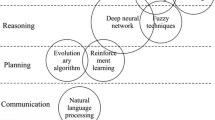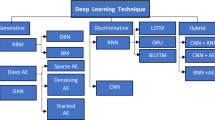Abstract
Recommending relevant items of interest for a user is the main purpose of the recommendation system. In the past, those systems achieve the recommended list based on long-term user profiles. However, personal data privacy is becoming a big challenge recently. Thus, the recommendation system needs to reduce the dependence on user profiles while preserving high accuracy on the recommendation. Session-based recommendation is a recently proposed approach for the recommendation system to overcome the issue of user profiles dependency. The relevance of the problem is quite high and has triggered interest among researchers in observing the activities of users. It increased several proposals for session-based recommendation algorithms that aim to predict the next actions. In this paper, we would like to compare the performance of such algorithms by using various datasets and evaluation metrics. A deep learning approach named GRU4REC (Hidasi et al. in Session-based recommendations with recurrent neural networks, 2015) and simpler methods are included in our comparison. Real-world datasets from three different domains are included in our experiment. Our experiments reveal that in some cases of numerous unpopular items dataset, GRU4REC’s performance is lower than expected. However, its performance is significantly increased after applying our proposed sampling method. Therefore, our obtained results suggested that there is still room for improving deep learning session-based recommendation algorithms.










Similar content being viewed by others
Notes
References
Hidasi B, Karatzoglou A, Baltrunas L, Tikk D (2015) Session-based recommendations with recurrent neural networks. arXiv preprint arXiv:1511.06939.
Quadrana M, Cremonesi P, Jannach D. Sequence-aware recommender systems. ACM Comput Surv (CSUR). 2018;51(4):1–36.
Devooght R, Bersini H (2016) Collaborative filtering with recurrent neural networks. arXiv preprint arXiv:1608.07400.
Hidasi B, Karatzoglou A (2018) Recurrent neural networks with top-k gains for session-based recommendations. In: Proceedings of the 27th ACM international conference on information and knowledge management (pp 843–852).
Kamehkhosh I, Jannach D, Ludewig M (2017) A comparison of frequent pattern techniques and a deep learning method for session-based recommendation. In: RecTemp@ RecSys (pp. 50–56).
Mobasher B, Dai H, Luo T, Nakagawa M (2002) Using sequential and non-sequential patterns in predictive web usage mining tasks. In: 2002 IEEE international conference on data mining, 2002. Proceedings. (pp 669–672). IEEE.
Bonnin G, Jannach D. Automated generation of music playlists: survey and experiments. ACM Comput Surv (CSUR). 2014;47(2):1–35.
Quadrana M, Karatzoglou A, Hidasi B, Cremonesi P (2017). Personalizing session-based recommendations with hierarchical recurrent neural networks. In: Proceedings of the eleventh ACM conference on recommender systems (pp 130–137).
Sarwar B, Karypis G, Konstan J, Riedl J (2001) Item-based collaborative filtering recommendation algorithms. In: Proceedings of the 10th international conference on World Wide Web (pp 285–295).
Rendle S, Freudenthaler C, Gantner Z, Schmidt-Thieme L (2012) BPR: Bayesian personalized ranking from implicit feedback. arXiv preprint arXiv:1205.2618.
Davidson J, Liebald B, Liu J, Nandy P, Van Vleet T, Gargi U, Gupta S, He Y, Lambert M, Livingston B, Sampath D. (2010) The YouTube video recommendation system. In: Proceedings of the fourth ACM conference on Recommender systems (pp 293–296).
Jannach D, Lerche L, Jugovac M. (2015). Adaptation and evaluation of recommendations for short-term shopping goals. In: Proceedings of RecSys 2015 (pp. 211–218).
Turrin R, Quadrana M, Condorelli A, Pagano R, Cremonesi P (2015). 30Music listening and playlists dataset. In: RecSys Posters.
Jannach D, Ludewig M. (2017). When recurrent neural networks meet the neighborhood for session-based recommendation. In: Proceedings of the eleventh ACM conference on recommender systems (pp. 306–310).
Jannach D, Zanker M, Ge M, Gröning M. (2012). Recommender systems in computer science and information systems–a landscape of research. In: International conference on electronic commerce and web technologies (pp. 76–87). Springer, Berlin, Heidelberg.
Karimi M, Jannach D, Jugovac M. News recommender systems–survey and roads ahead. Infor Process Manag. 2018;54(6):1203–27.
Ludmann CA (2017). Recommending news articles in the CLEF news recommendation evaluation lab with the data stream management system odysseus. In: CLEF (Working Notes).
Mikolov T, Karafiát M, Burget L, Černocký J, Khudanpur S (2010) Recurrent neural network-based language model. In: Eleventh annual conference of the international speech communication association.
Devlin J, Chang MW, Lee K, Toutanova K (2018) Bert: pre-training of deep bidirectional transformers for language understanding. arXiv preprint arXiv:1810.04805.
Radford A, Wu J, Child R, Luan D, Amodei D, Sutskever I. Language models are unsupervised multitask learners. OpenAI Blog. 2019;1(8):9.
Sun F, Liu J, Wu J, Pei C, Lin X, Ou W, Jiang P (2019): BERT4Rec: sequential recommendation with bidirectional encoder representations from transformer. In: Proceedings of the 28th ACM international conference on information and knowledge management (pp. 1441–1450).
Ouyang Y, Liu W, Rong W, Xiong Z (2014). Autoencoder-based collaborative filtering. In: International conference on neural information processing (pp. 284–291). Springer, Cham.
Vaswani A, Shazeer N, Parmar N, Uszkoreit J, Jones L, Gomez AN, Kaiser Ł, Polosukhin I. (2017): Attention is all you need. arXiv preprint arXiv:1706.03762.
Hendrycks D, Gimpel K. (2016). Bridging nonlinearities and stochastic regularizers with gaussian error linear units. CoRR abs/1606.08415.
Dang TK, Nguyen, QP, Nguyen VS (2019). Evaluating session-based recommendation approaches on datasets from different domains. In: 6th International conference on future data and security engineering (FDSE), Springer, pp. 577–592.
Phan TN, Dang TK. A lightweight indexing approach for efficient batch similarity processing with mapreduce. SN Comput Sci (SNCS). 2020;1(1):1–16.
Dang TK, Pham DMC, Ho DD. On verifying the authenticity of E-commercial crawling data by a semi-crosschecking method. Int J Web Inf Syst (IJWIS). 2019;15(4):454–73.
Dang TK (2008): Ensuring correctness, completeness and freshness for outsourced tree-indexed data. In: Information resources management journal (IRMJ), (vol 21(1), pp. 59–76). Idea-Group Publisher,.
Le HT, Nguyen LH, Dang TK (2020): A farthest first traversal based sampling algorithm for k-clustering. In: 14th International conference on ubiquitous information management and communication-IEEE IMCOM 2020, (pp. 1–6).
Nguyen LH, Dang TK, Le HT (2019): A comparative study of the use of coresets for clustering large datasets. In: 6th International conference on future data and security engineering (FDSE), Springer, pp. 45–55.
Acknowledgements
This research is supported by a project with the Department of Science and Technology, Ho Chi Minh City, Vietnam (contract with HCMUT No. 42/2019/HĐ-QPTKHCN, dated 11/7/2019). We also would like to thank the FDSE 2019 organizing committee and paper reviewers for suggesting corrections and improvements. The audience at our presentation session in FDSE 2019 conference also offered constructive feedbacks for the paper.
Author information
Authors and Affiliations
Corresponding author
Ethics declarations
Conflict of interest
The authors report no conflicts of interest.
Additional information
Publisher's Note
Springer Nature remains neutral with regard to jurisdictional claims in published maps and institutional affiliations.
This article is part of the topical collection “Future Data and Security Engineering 2019” guest edited by Tran Khanh Dang.
Rights and permissions
About this article
Cite this article
Dang, T.K., Nguyen, Q.P. & Nguyen, V.S. A Study of Deep Learning-Based Approaches for Session-Based Recommendation Systems. SN COMPUT. SCI. 1, 216 (2020). https://doi.org/10.1007/s42979-020-00222-y
Received:
Accepted:
Published:
DOI: https://doi.org/10.1007/s42979-020-00222-y




